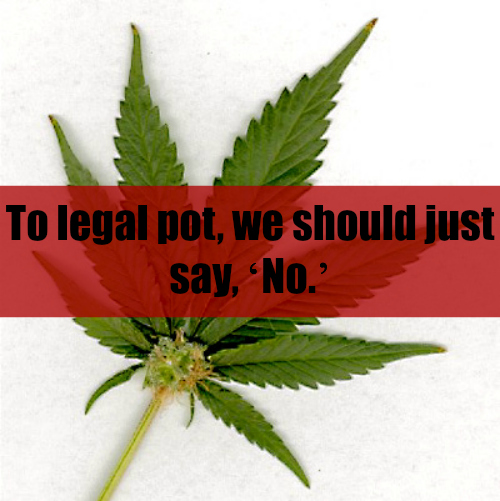There’s a debate going on in America about decriminalization and legalization of marijuana use. Federal law bans all sale and possession of marijuana, but enforcement varies widely at the state level. Colorado and Washington now allow recreational pot.
Young people ought to be our top consideration in this discussion. A recent Australian study followed the drug use of more than 3700 teenagers. After controlling for dozens of factors, researchers found that teens who regularly smoked marijuana were 60 percent less likely to graduate from high school, and seven times more likely to attempt suicide.
I remember watching marijuana use drain the drive and motivation from kids I went to school with. And, today’s pot is four to fifteen times as strong as that in the reefers of the 60’s and 70’s.
Congressman John Fleming of Louisiana is the perfect person to be speaking out on this issue because he’s a medical doctor. As a physician in the U.S. Navy he trained at the Navy’s drug and alcohol treatment center in Long Beach California. Later, in private practice, he worked with chemically dependent persons through the “New Beginnings” program at Louisiana’s Minden Medical Center. His book, Preventing Addiction: What Parents Must Know to Immunize Their Kids Against Drug And Alcohol Addiction was published in 2006.
Dr. — and Congressman — Fleming has both medical and public policy reasons to oppose making marijuana a legally accepted drug.
Dr. Fleming says there are several myths being pushed in this legalization effort.
One is that marijuana is a medicine. It’s not. There is, though, a synthetic drug, marinol, that can relieve nausea and vomiting.
Myth number two is that the oil extract from marijuana is not addictive. Dr. Fleming says it is.
Another myth: Smoking marijuana is harmless. It’s not. It’s not healthy to smoke anything. The tar in pot is more dangerous than that in cigarettes. And the cookies and candies containing marijuana are causing some severe adverse reactions.
A dangerous myth being pushed about pot is that it is not a gateway drug. Dr. Fleming has worked with plenty of addicts who started with marijuana.
One in six young people who tries marijuana becomes addicted. Dr. Fleming says the human brain does not fully mature until the early to mid-twenties. The younger someone is when he or she starts smoking or otherwise ingesting marijuana, the more likely that person is to become addicted. And for a person who becomes hooked on pot, the battle to escape addiction is lifelong.
People pushing for the decriminalization of marijuana claim theirs is the small-government, conservative position. Government, they say, should take its hands off and let the revenues flow into the states. Dr. Fleming says that income will be more than offset by devastating social costs. Legalizing pot would dramatically increase usage, resulting in more need for treatment, more car crashes, more medical repercussions.
To legal pot, we should just say, ‘No.’
 Listen Online
Listen Online Watch Online
Watch Online Find a Station in Your Area
Find a Station in Your Area











 Listen Now
Listen Now Watch Online
Watch Online
